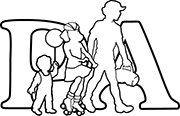Adolescence is a time of tremendous growth and potential. Teens can have difficulty navigating new milestones in preparation for adult roles. These transitions can lead to various mental health challenges that can be associated with increased risk for suicide. Suicide is the second leading cause of death among youths age 15 – 24. Approximately one out of every 15 high school students reports attempting suicide each year.
Comments or thoughts about suicide, also known as suicide ideation, can begin with small comments such as, “I wish I wasn’t here.” These small comments can become more explicit or dangerous over time. A threat of suicide should never be dismissed. It is essential to recognize warning signs of suicide. Suicide behaviors are a psychiatric emergency. The teen’s medical provider should be contacted immediately for any symptoms of suicidality or emotional instability. The teen should be taken directly to the nearest Emergency Department for any suicidal gesture or threat. The following is a list of symptoms, and although non-inclusive, should be considered as warning signs:
- Increased alcohol and drug use
- Aggressive behavior
- Withdrawal from friends and family
- Dramatic mood swings
- Impulsive or reckless behavior
Nearly half of people who die by suicide have a known mental health condition. There are other things that may put a person at risk for suicide, including:
- A family history of suicide
- More withdrawn
- Changes in sleep patterns and eating habits
- Erratic or reckless behavior
- History of trauma or abuse
- Prolonged stress
- A recent tragedy or loss
- Access to lethal means, such as firearms and pills
- Previous suicide attempt
- Gay, lesbian or bisexual orientation, or transgender or gender non-conforming identity
While adolescents are carefully screened for suicidal ideation often at their medical appointments, it is imperative that teens, parents and caretakers understand that there are a great deal of preventive strategies for youth and community after an attempt or death.
- National Suicide Prevention Lifeline: 1-800-273-TALK This is a 24 hour confidential hotline
- ReadyKids 24 hour Teen Crisis Hotline 434-972-SAFE
- Good problem-solving abilities: kids who are able to problem solve are at lower risk of suicide
- Strong connections to family, friends and community
- Restricted access to lethal means of suicide
- Effective and prompt care for emotional, physical and substance abuse disorders
Parents, guardians, family members, friends, teachers, school administrators, coaches, mentors, service providers and many others can play a role in preventing suicide and supporting youth.
Kelly Vincel, CPNP

